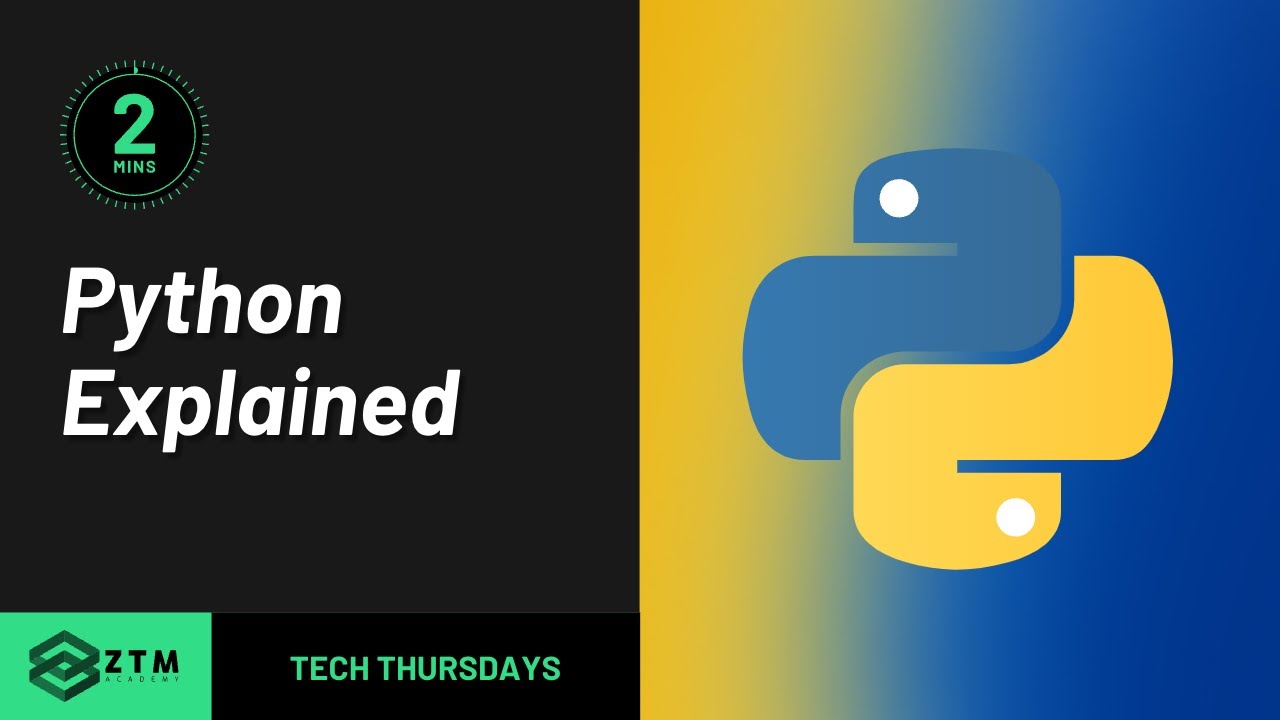The Story of Python, by Its Creator, Guido van Rossum
Summary
TLDRIn this interview, the creator of Python, Guido van Rossum, recounts his Dutch upbringing and his early career at CWI, a government-funded research lab. He discusses the origins of Python, which began as a solution to the limitations of shell scripts and C programs for a distributed system project called Amoeba. Van Rossum initially estimated Python's development would take two to three months, but it eventually grew into a widely adopted programming language. He reflects on Python's open-source release, the formation of a community, and the current transition in Python's governance structure as he steps down from his role as Benevolent Dictator For Life (BDFL).
Takeaways
- 🌍 The speaker is Dutch and grew up in the Netherlands.
- 🐍 Python was created by the speaker while working at CWI, a government-funded research lab focused on advanced math and computer science.
- 🔠 The speaker's first job was with a team working on the ABC programming language, which influenced his views on language design.
- 📚 The unsuccessful ABC project led to the speaker working on the Amoeba distributed system, sparking the idea for a new programming language.
- 💡 The desire for a programming language that was more user-friendly and concise than shell scripts or C programs led to the creation of Python.
- 🕒 The initial estimate for building Python was two to three months, but it took longer and the productivity gains were not immediate.
- 🌐 After about a year, Python was released as open source, which helped in building a community of users and contributors.
- 👥 The Python community grew, with people spreading the word and contributing to the language's development.
- 🔑 The speaker had the final say on contributions to Python during its early years.
- 🔄 The speaker resigned from his position as BDFL (Benevolent Dictator For Life), reflecting a change in Python's governance structure.
- 🔄 The Python community is in the process of determining the best governance model for the future, possibly involving a committee for long-term guidance.
Q & A
Where did the creator of Python grow up?
-The creator of Python grew up in the Netherlands.
What was the name of the research lab where Python was created?
-Python was created at CWI, a research lab funded by the government.
What was the first programming language the creator of Python worked on?
-The first programming language the creator of Python worked on was named ABC.
Why did the creator of Python decide to develop a new programming language?
-The creator of Python wanted a third language that was more like a genuine programming language, easier to use like shell scripts, but without the readability issues of shell scripts.
What was the name of the distributed system project that influenced the creation of Python?
-The distributed system project that influenced the creation of Python was named Amoeba.
How long did the creator of Python initially think it would take to build the Python interpreter?
-The creator of Python initially thought it would take two or three months to build the Python interpreter.
How did the creator of Python plan to recoup the time spent building the Python interpreter?
-The creator planned to recoup the time spent by increased productivity not just for himself but for the whole team using the new language.
When was Python first released as open source?
-Python was first released as open source about a year after its creation.
What was the initial response to Python's open source release?
-The initial response was the formation of a small community of Python enthusiasts who started spreading the word about Python and contributing to its development.
What was the role of the creator of Python in deciding contributions to the language?
-The creator had the last word on whether he wanted a particular contribution in the language.
What significant change is happening in Python's governance structure?
-Python's governance structure is changing, with the community figuring out the best way forward, likely moving towards a small committee guiding Python's future vision.
Outlines

This section is available to paid users only. Please upgrade to access this part.
Upgrade NowMindmap

This section is available to paid users only. Please upgrade to access this part.
Upgrade NowKeywords

This section is available to paid users only. Please upgrade to access this part.
Upgrade NowHighlights

This section is available to paid users only. Please upgrade to access this part.
Upgrade NowTranscripts

This section is available to paid users only. Please upgrade to access this part.
Upgrade NowBrowse More Related Video

History of Python | Python Tutorials for Beginners #lec2

"Code is the Easy Part" by Evan Czaplicki

The Complete History of Python

¿Qué es Python y por qué es el lenguaje número 1 del mundo? - La mejor explicación en español

Python - Introduction - W3Schools.com

What is Python? | Python Explained in 2 Minutes For BEGINNERS.
5.0 / 5 (0 votes)